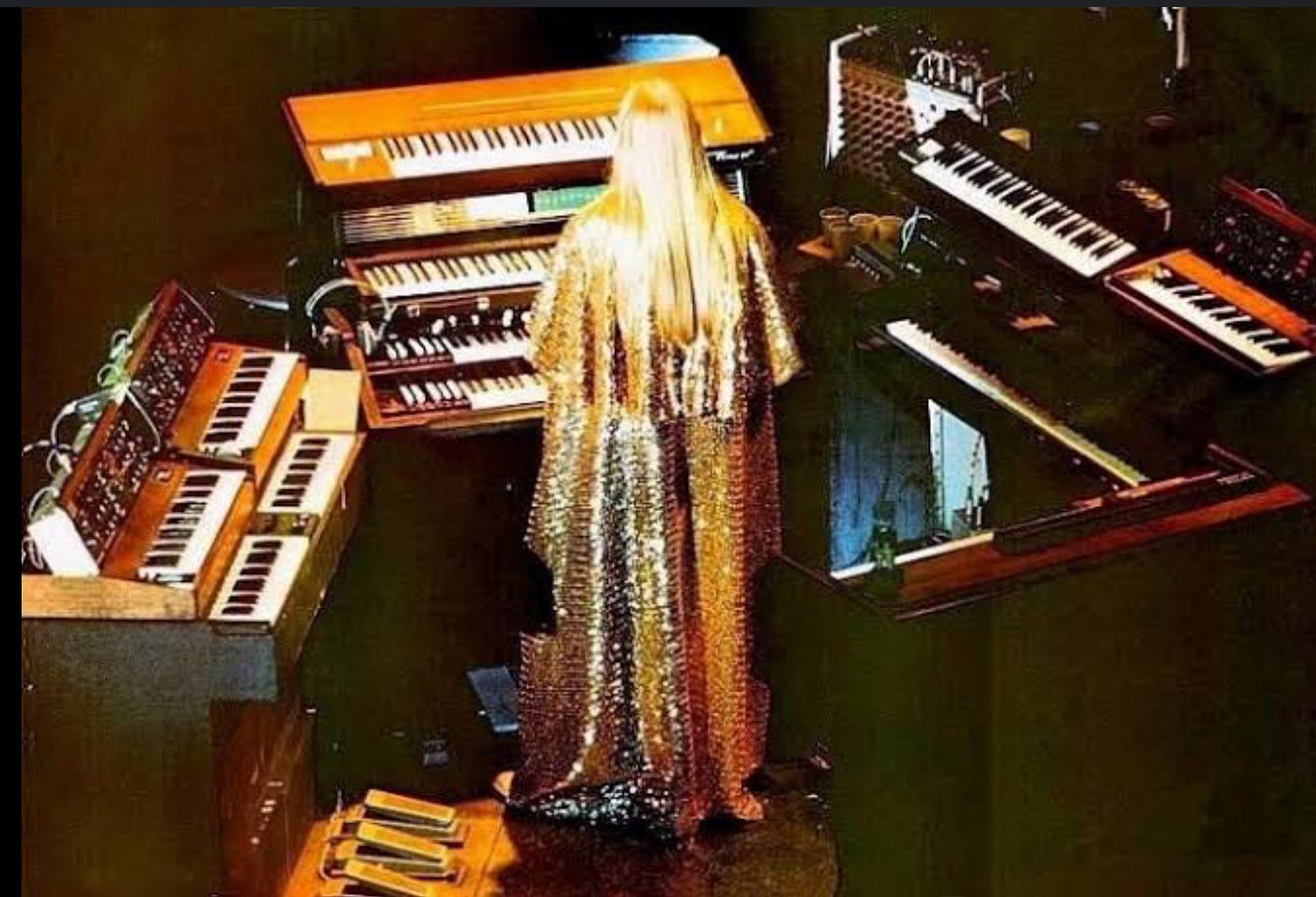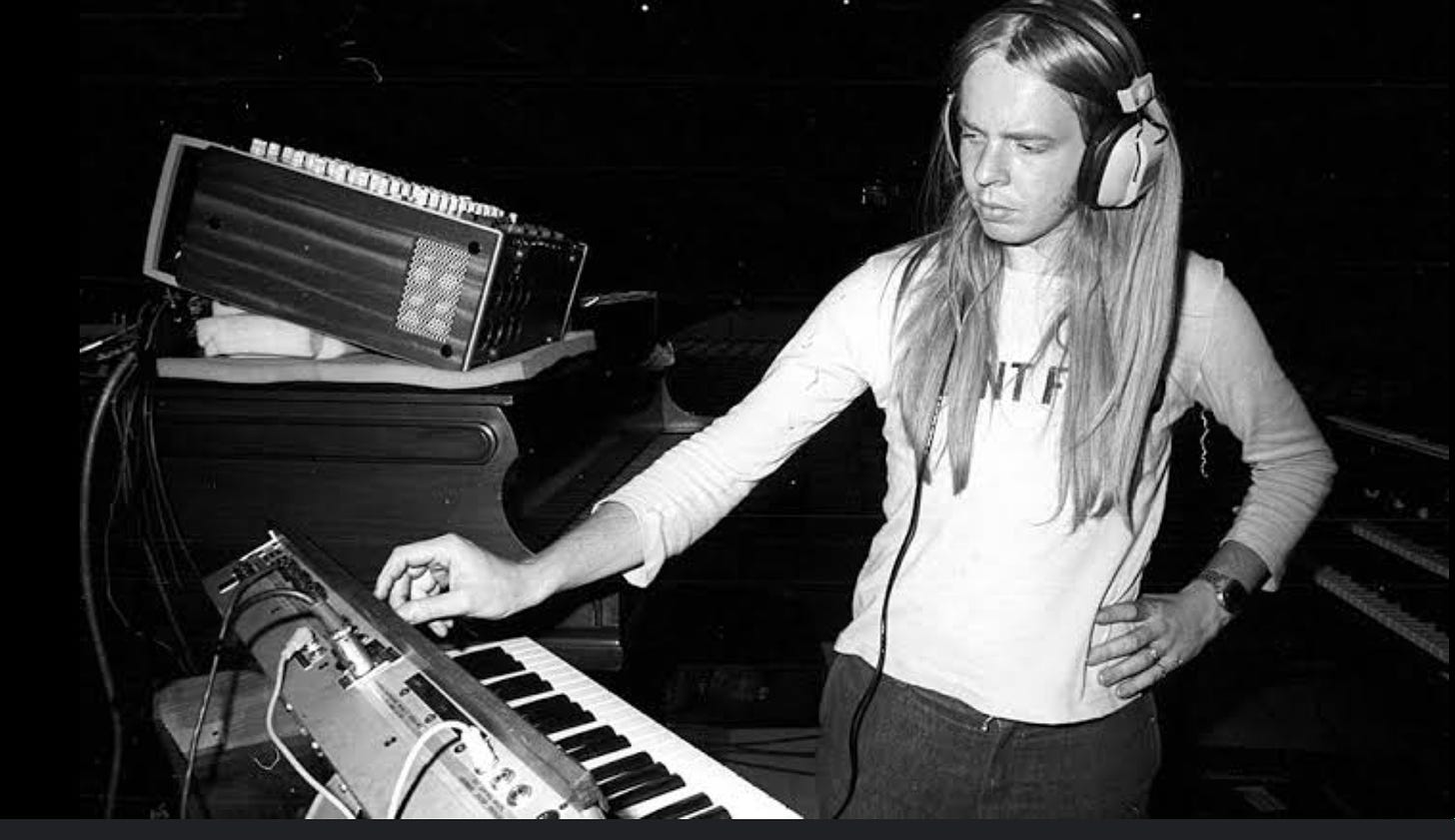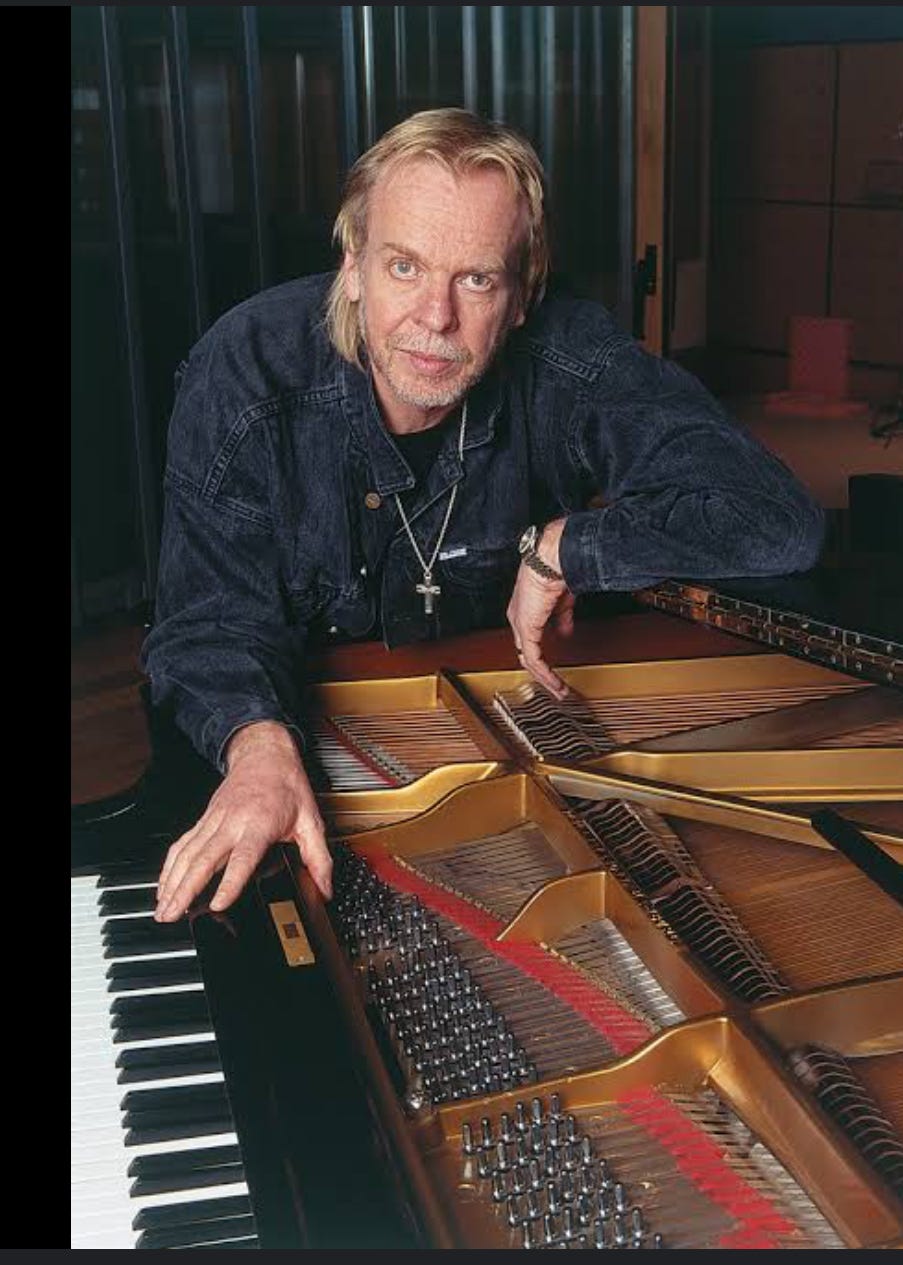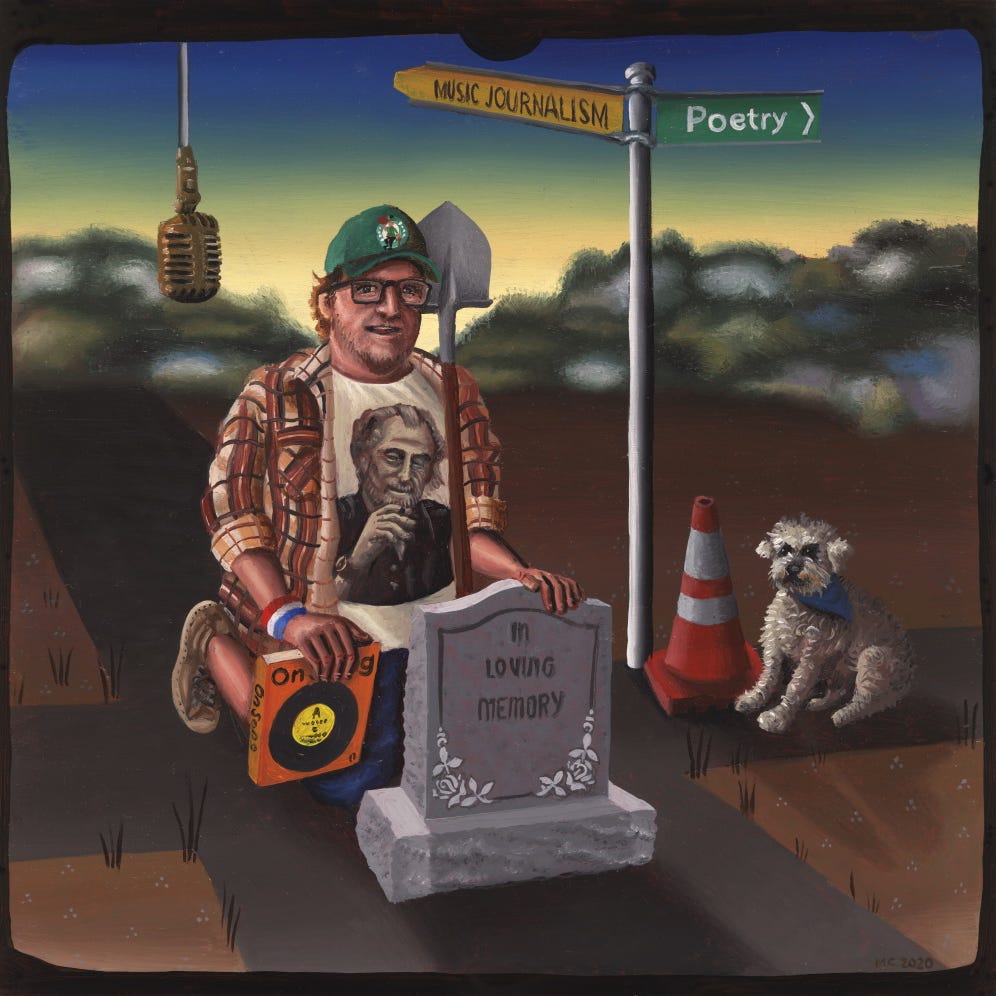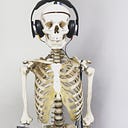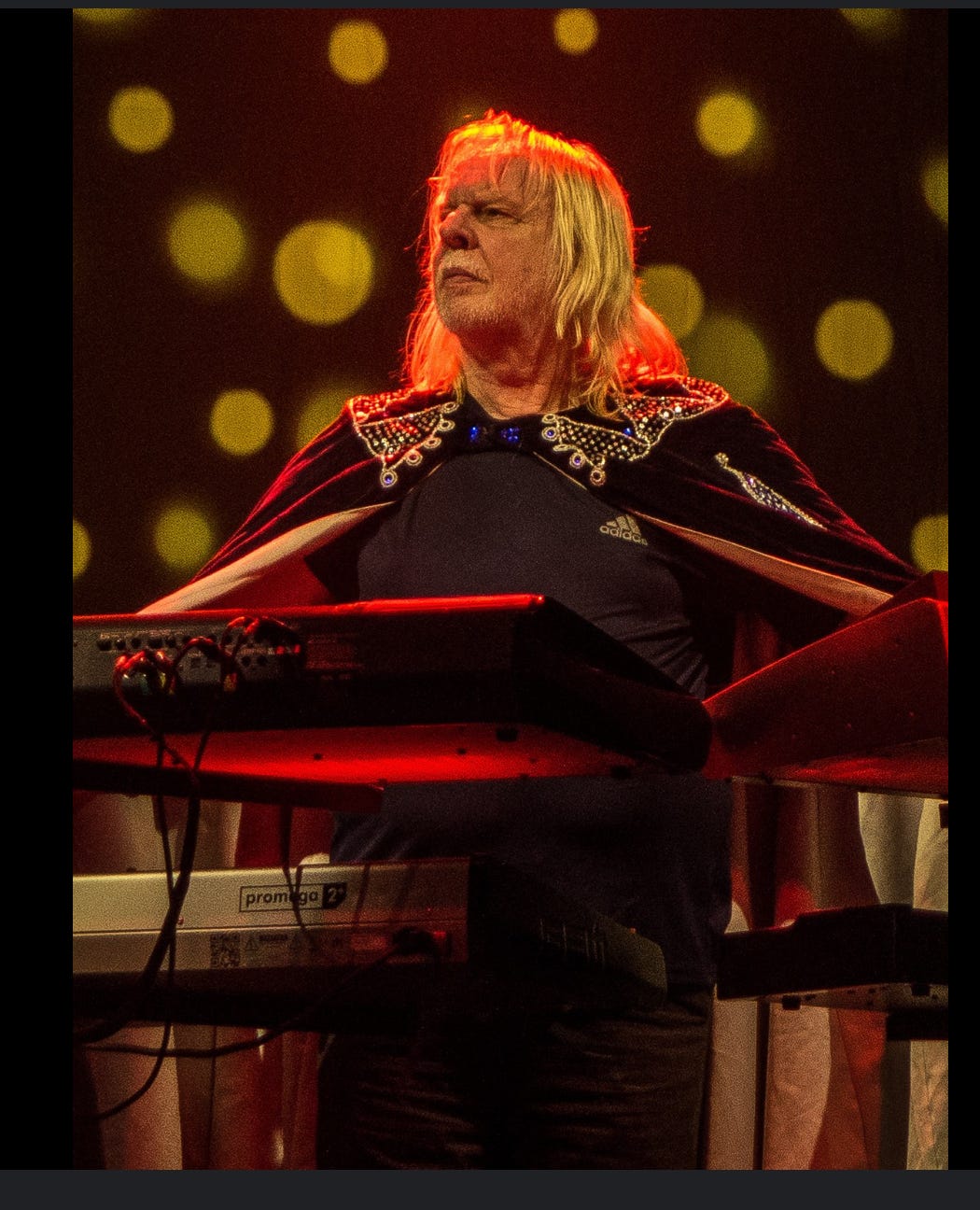From The Archives: A Rick Wakeman Interview from 2012.
Remember when there were big, interesting interviews with entertainment figures even in mainstream publications in New Zealand? I did some…and loved it. They don’t really happen now. Here’s one I did.
Back in 2012 Rick Wakeman his first appearance in New Zealand since 1975. Back in the seventies it was to tour one of his audacious concept albums, Journey to the Centre of the Earth (yes, based on the book by Jules Verne). Wakeman remembers it well ("I can honestly say it feels like it was five or six years ago, not 35 years or more!"). In 2012 he was bringing his show, An Intimate Evening with Rick Wakeman, to New Zealand for three shows. It featured Wakeman the pianist, performing songs from across his career as a solo artist, member of Yes and session player to the stars. It also featured Wakeman the raconteur, stand-up comedian, TV host, interviewer, chat-show personality.
In the lead up, as was sometimes the way with such shows, I got to interview Wakeman over the phone for some promo — and managed to get more of the story than just the plugs for the gig. Well, it was all plugging the gig in a way of course. Anyway, here, from the archives, is that chat:
"The show," he explains down the line one evening, "just sort of evolved really over the last 20 years. Since the 1980s I've been known more for my TV work, I used to host Live at Jongleurs and of course Grumpy Old Men and so it's really all come from there. It's been a funny career really, there are people that know me now as a TV person, a comedian, an interviewer - I've had people genuinely gobsmacked to find out I am a musician. I play a little and they go 'I didn't know you played'." Pause for guffaw.
So how did this TV work all start happening?
"Well it's funny really, a semi-accident really, but you see I was on this talk show and I was booked to play a piece, just music. But they had a last-minute cancellation. So I was asked if I had any funny stories, if I minded being interviewed. I remember I was asked if I'd been to Russia and I said 'not for some time, I was arrested there, you see, for stealing a KGB uniform' and that was it really. It all grew from there. I was told at the time 'you'll have all the chat-shows calling you up, wanting you to tell that story' and they did. It all really just grew from there”.
Wakeman is a pleasure to interview, it's easy - you just tear the tab on a memory and let him do the rest. His life ("a charmed one") has not been without its demons ("I was such a big drinker, but that's not been the case for many years now, I've got that sorted") and he's remembered for the excesses of prog-rock folly, such as touring his 1975 album, The Myths and Legends of King Arthur and The Knights of the Round Table on ice. Yes. Barely fathomable in this day and age ("or then", Wakeman adds, laughing).
He cut his teeth with The Strawbs and worked sessions with, most famously, David Bowie and Cat Stevens but also "all sorts of weird and wonderful people" in what Wakeman refers to more than once during our conversation as "a wonderful apprenticeship". He joined Yes in 1971 when the band "was on the cusp of things". Just a few years later he was burnt out.
Time now for the famous curry story.
"It was 1973 and we had released Tales from Topographic Oceans, which I didn't particularly like. The third piece in the show was a particularly long percussive piece and I didn't have much to do. Now, I used to have this roadie that worked for me, he would lie underneath my keyboard ostensibly to fix things, but mostly he would just mix me drinks and pass them up. So on this occasion he asks me if there's anything I need, but I heard it as him asking what I felt like doing after the show. I just replied 'oh, I'll probably go for a curry' and then he asked me what I would have so I started naming various menu items, 'onion bhaji', you know...and then, 20 minutes later there is this smell. Of course you know that curry is a smell that wafts, you detect it. And he's standing there under the keyboard rig with these bags of takeaway curry."
The story, a classic pull-the-other-one, is "absolutely true". And Wakeman says he proceeded to "lay out the meal across my keyboards to have some." If you are thinking Spinal Tap right now, remember this is 10 years before that film. And Wakeman chuckles as he adds the coda, "I've probably been offered curry at gigs a couple of dozen times since, I don't have it on stage, but I'll arrive backstage to find that someone's sent a takeaway curry to me, or it's been ordered, or there's a takeout menu there. It's nice. It's funny. It's turned into a joke that's just lived on. You have to laugh."
But I have to ask if - in hindsight - this was an obvious sign that he had grown bored with the band. Eating a curry on stage in front of thousands of people seems a clue that apathy or acrimony was creeping in...
"Yes, you're probably quite right," Wakeman says laughing. "You see, any band is give and take and if you aren't enjoying it, if you can't find that balance then it doesn't work. It was shortly after this - sometime in 1973 or around that time that I just decided that I couldn't do it anymore. I knew I just could not offer what I'd like to. He remembers the band's manager saying 'don't be nuts, we've got football stadiums lined up. Think of the money'."
The definitive moment is memorable to Wakeman. "It was May 18, 1974. I remember it vividly because it was my birthday. And it was surreal. I had a little bolthole in the country, I'd disappeared to have a break and I received a phone call asking me why I wasn't in rehearsals for the new Yes album. I said 'well, I've left. I'm not in the band anymore'. It was suggested that I pack up and get back as quickly as I could so they could carry on with writing and recording. And I had to explain again that I was done. Finished. I couldn't be in the band any more at that time. It was a very strange feeling. And then almost immediately after I was phoned by Terry O'Neil from A&M records who said 'I've got some great news!' And he told me that Journey to the Centre of the Earth had gone to number one. So, yeah, that all happened on one day, my birthday. Within minutes I'd officially left the band and been told my solo career was flying. It was very strange. But that was it. That was the break”.
But the break with Yes was never - quite - clean. Wakeman returned over the years, first in the late 1970s, again in the late 1980s for the breakaway Anderson Bruford Wakeman Howe and from there again to Yes in the mid-1990s for an album and finally for the start of the now never-ending reunion shows that have carried on (now without Rick).
Wakeman has mixed feelings about Yes, but he is gracious when he remembers the band's best work, grateful for the time, for what it offered his career and saddened at how he feels the work will ultimately be remembered in the wake of constant reunion touring.
"Yes deserved a dignified end - for the fans, for the musicians. But the shows now just feel wrong." Wakeman is loyal to his friend Jon Anderson, agreeing with many Yes fans that "without Anderson it isn't Yes". He says he has felt hurt by the way the group has carried on trading on the name without its lead singer and sums up his stepping down by simply saying, "you should always have enthusiasm for what you do. If you don't - then don't do it."
He sums up Chris Squire's businesslike approach to running the band (something I found very obvious when interviewing him earlier in the year) by saying that when he told Squire he was out, definitively, "he simply asked down the phone, 'well who can we get that will do your parts well enough?'" Wakeman replied, "ask either of my sons". Squire placed a call and Wakeman Junior was in the band. On they continued.
Rick believes the Yes that tours the world now is a grotesque - a caricature of what the band was. But he has plenty of fondness for the group's great years and great albums.
"I still think Awaken is wonderful - but I mean listen to Fragile, Close to the Edge obviously," (he admits to being "very proud" of Close to the Edge) and he thinks one of the most important albums that Yes ever did was 90125. "Now I wasn't on that album but you see prog was in a terrible state and Yes was in its death rolls. Trevor Rabin offered something new and Trevor Horn producing. I don't care if it's not the classic Yes lineup, it carried the band on. It introduced them to new fans. It kept them going. And there was some great material there. I am a Yes fan, ultimately. I've been a member of the band, but I was always a fan of the band first."
So has he changed his mind with regard to Tales From Topographic Oceans?
"It's very hard to make a long-term conclusion on music until at least a length of time has passed, 20 years or so. And I think the band wholeheartedly agrees - because we spoke about it on the final reunion tour I did - that Topographic has some moments, but a lot of padding; too much. It was a case of having too much material for one record but not really enough for more than one record. So, what did we do? We released more than one record." He has a chuckle at this, acknowledging the excess of the time. "I think if it were now and we could fill one CD with the best material from that album, make one disc, it would have been better."
In the mid-1970s Wakeman was still providing his playing as a session-musician, he had solo albums - huge concept records such as The Six Wives of Henry VIII, about, naturally, the six wives of the king, each track named for one of the wives and attempting to summon the spirit and character of that person through synthesiser music - and he had been in The Strawbs and Yes. It was, to put it mildly, a busy time.
"I've got an overactive brain," Wakeman plainly states. I wait for the laugh that never accompanies this assessment but then he continues with, if not a justification for some of the albums he made, then at least an explanation.
"I enjoy work, I enjoy life and I'm not good at relaxing. I've also never slept very much, due to this overactive imagination and my brain constantly thinking. Even when I was a heavy drinker and smoker I was up at 5.45am every morning. And I always have ideas. Well, almost always. I'm never too worried if I don't - a few weeks can go by with nothing. You can have a relatively lean idea then a lot of material can come together all at once. You can have a very productive two or three weeks. But it took a toll on my health, obviously, working and playing that hard, but cutting the booze has been a necessary thing. For survival. I'm still here. And though I probably should cut down the amount of playing I do, and travelling, I can't do that just yet. But I am supposed to be taking it easier."
He says the long flight to New Zealand is a great chance to relax but also to work on ideas. "I'll have my notepad with me and I do like to sit down and write in those situations, definitely."
So as we turn back to looking at the show that he will bring to New Zealand, a mix of the stories and music from across 40 years, it's time to talk about some of the most famous sessions that Wakeman worked on.
First up, Morning Has Broken.
"Well Cat Stevens - or Yusuf Islam as he is now - was always very generous. I had tea with him about seven or eight years ago and we reflected on this. He was just so generous. Here he had this simple hymn to record, that's all it was. But Cat made it into a song. It was short, he needed an instrumental bit to flesh it out and he had liked my playing in the studio so he just suggested I work on something. He wanted me to create an intro for it and, yeah, I am really proud of my playing there. That is a signature piece for me, definitely."
Wakeman looks at the session work as being "the equivalent of a piece of film music to a successful film - it's someone else's vision and you bring what you have to it." Here he chuckles as he adds a piece of wisdom from film director Ken Russell. "He told me, 'Rick, there's never been a successful film soundtrack to a failed film' and if you think about that he's right. In a perfect world it's about all these parts coming together."
Having played the mellotron on Space Oddity ("I was paid nine quid for that") Wakeman played piano on other key David Bowie tunes including, most memorably, Life on Mars and Oh! You Pretty Things. In 1985 he reunited with Bowie to play on Absolute Beginners.
"David is a dear, dear friend. I've stayed in touch with him all these years and he had a concept about music that was just perfect, you know. He was such a great conceptualist - he knew how to manipulate the music for the people and the people for the music. And I remain friends with him, though in this crazy life I think it's been a couple of years since we last spoke. That's the thing, we're all busy, but it's been a charmed life for me. So many memories and wonderful pieces of music to be involved with."
Wakeman recalls "a session with Lou Reed where the lights had to be out so nobody could see - yeah, that was interesting!" And then there's the time that he was called to the studio at 2am because a jet-lagged and (still/always) partying Harry Nilsson had to record, he "had a concept for the best music that anyone was ever going to hear and he couldn't rest, we had to be assembled, so up I got up after the phone woke me and made it to the studio to be part of this happening. Ten minutes after we got there it was off, he'd fallen asleep."
There are sessions that are less famous that Wakeman still holds dear (such as Colin Scot) and he's particularly proud of his work on Al Stewart's album, Orange ("a lovely record that, very underrated really").
And he's continued to "help friends out" and to "turn up for interesting stuff", marking Ozzy Osbourne's album Ozzmosis as "a prog-metal album, just fantastic, I mean that song Perry Mason, wonderful".
He feels fortunate to have met and worked with Marc Bolan ("a true star") and says he never turned down work to find he'd later regret it.
"There are people I would have loved to work with that I didn't - absolutely. But I never regretted a session I did or didn't do. I would have loved to record with Paul McCartney on some of his early solo recordings, wonderful music. Playing some lovely organ perhaps. I would have loved to record with John Lennon. He was a dear friend. I had lunch with him just two days before he died. I think about that a lot, you know, as time marches on now..."
Wakeman has plenty of projects on the go, there will be another album of Yes songs performed as solo piano pieces, there will be more original albums, more concepts. But the touring will have to slow down.
So this is an exciting chance for Kiwi fans. And one that Wakeman is looking forward to.
"It's a fun show, I really think so. It's a bit of everything, some of these things we've talked about now and so much more. I like to think that it's a show you could take your mum to. And when it ends you'll both have a smile on your face. There's some jokes, there's music. There are stories. And it's about enjoying the music and the stories - I hope to entertain. That's the plan with this."
And it reconnects him with what is still his first love in music. The piano.
"There's just something about it, after all these years, always. I mean I'm known for all the synth work, sure. But to hit one note on a piano and let it ring out. Just from one key. That's about as pure as it gets. For me. And that's something I don't tire of. I sit at the piano and I just love to play. The possibilities, even after all these years, seem endless."




